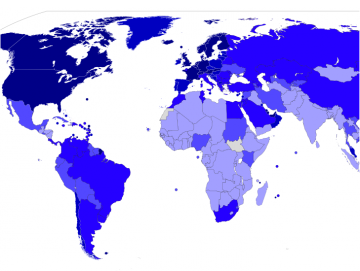Impacts of globalization on occupational health and safety conditions and relevant national policies
Lead researchers
|
 |
Study description
The study explores how global political and economic development paradigms have impacted the health system, leading to decreased health system capacities to control infections effectively.
This project provides the understanding of the impacts of globalization on occupational health and safety conditions and relevant national policies – crucial to contextualizing the findings in projects #2-6.
The redistribution of precarious work in a globalized world that has been documented in manufacturing is explicitly examined for the healthcare sector regarding presence of work-related risks, measures for preventing and mitigating associated impacts and capacities for addressing these issues when implementing adaptive policies. More specifically, the current project focuses on how international development has affected South African tuberculosis epidemics through influencing various national expenditures and policies.
Through extensive document review, interviews and systematic comparative review of patterns and time trends in the presence of risk factors, injuries, illness, preventive measures and policies, we examine the impact of factors associated with the expansion of the “global marketplace”, such as fiscal and technological change (outsourcing, privatization, downsizing, increased work intensity) that have been observed in other settings, alongside factors such as migration, heavy disease burden, and neglected capacity. Macroeconomic policies, global health governance, the influence of human rights-based health assertions are be among the international trends and influences considered.
